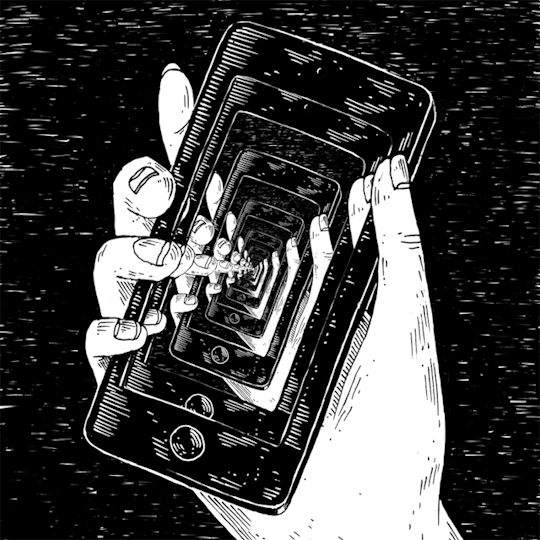Don't wanna be here? Send us removal request.
Text

Technology has become an integral part of modern life, and its impact on childhood development has been debated for many years. As a child who grew up in a pre-digital age, I have observed the drastic changes technology has brought to children's lives. Children today are more dependent on screens and less reliant on face-to-face interactions, which may harm their social skills and emotional development. It was uncommon for kids to access a mobile device or tablet in my childhood. Instead, we played outside, read books, and interacted with each other in person. Technology was not a significant aspect of our lives, and we did not rely on it for entertainment or socialization. However, as I grew older, technology gradually became more prevalent in children's lives, and today's kids are growing up with screens constantly in their faces.
My parents got me an iPod touch for my birthday when I was in first grade. At the time that wasn't extremely uncommon, lots of kids my age had an iPod but that was the extent of personal devices, at least the community I grew up in. I was thrilled about my iPod, I downloaded tons of music and mobile games onto it like Plants vs Zombies. I have a lot of nostalgia and memories when it comes to that iPod, which I actually do still have kept for sentimental reasons. When I was growing up kids had iPods but they did not have iPads and nowadays I constantly see children with screens in their face always watching some sort of video. And a lot of the times their parents allow it to keep them busy and not complaining. It's an easy fix to solve a kids problems but it comes at the cost of obsession and addiction with children not being able to go out without some device. When it comes to social media, most kids in my grade didn't get it until around 7th to 8th grade, and even then, it was limited. Although we did have Youtube although out elementary school, but it wasn't on our phones or iPads it was on a home desktop computer typically. And that wasn't really considered social media at that time. So how do we as a culture and society fix this issue with not only children but also ourselves? I can't deny that I also am on my phone and screens a good amount of the day, let's acknowledge the fact that I'm complaining about people using screens too much while writing on a screen. I think people might attach themselves to something like an iPod the same way they might with their first bicycle or car. It might not have been the nicest thing in the world but it meant something to you because it represented the next chapter or step in your life. And I think a lot people would agree that that makes it culturally valued as well because at the time it was super cool and you got a lot of enjoyment out of it.

Social media and its effect on children specifically is an issue in and of itself, and it's becoming an epidemic. Teens can get caught up in the number of likes, comments, and followers they have, making them feel good or bad about themselves. But it mostly makes them feel bad about themsleves. This can lead to cyberbullying or feeling like they don't fit in with their friends. It's also tough to tear kids away from their screens once they get into social media and video games. This can make it hard for them to focus on schoolwork and other activities requiring concentration, hurting their grades. The downside of technology is that it can also make kids less interested in hanging out with their friends and experiencing the real world. They may miss out on some cool experiences because they're too busy staring at screens. It personally bothers me a lot because some of my best memories as a kid was golfing with my friends, hiking, going swimming in the creek or lake, and I just see youth doing those things as much anymore. If I do see them, they are almost always on their phone recording it. One of the biggest things I've noticed this issue at is concerts. I used to go to concerts and just listen and experience the music nowadays, we just record the whole thing on our phones. I can't claim I dont do that occasionally, but its sad to see, and I try to avoid doing that.. Also, they may miss out on valuable opportunities to learn how to communicate and build relationships with their peers, which could lead to social awkwardness and difficulty forming close friendships. According to The Impact Of Screen Media On Children: A Eurovision For Parliament "Over the last twenty years social interaction (eye-to-eye contact) has gone down while eye-to-screen-contact has gone up. Just before the year 2000 life became literally virtual: people would spend more time in front of a screen than spending time interacting with other human beings." (Source) While technology has undoubtedly brought many benefits to our lives, it is essential to recognize its potential negative impacts on children's development. Parents and educators must work together to balance technology and real-world experiences, ensuring children develop social skills and emotional intelligence alongside their technological abilities. We must refrain from allowing the convenience of screens to come at the cost of human interaction and emotional development.

We need to continue to familiarize ourselves about the potential risks and benefits screens can possibly have on children. Screens, such as TVs, tablets, smartphones, and computers, have become an integral part of children's lives in today's society. According to the American Academy of Pediatrics (source) "Children aged 2 to 5 years should have no more than one hour of screen time per day". In comparison, children aged six years and above should have consistent limits on the amount of time spent using media. However, these guidelines often need to be followed, and there is growing concerned about the effects screens may have on children's development. This blog series aims to explore the impact of screens on children's growth from a balanced and evidence-based perspective and provide practical strategies and recommendations for promoting healthy development in children. Some Potential Benefits and Risks of Screen Time for Children's Development are that screen time can positively and negatively affect children's development. On the positive side, screens can provide educational opportunities, such as access to online resources, interactive learning games, and virtual field trips. Screens can also facilitate social connections and communication with friends and family far away.
However, excessive screen time can harm children's physical, cognitive, and socio-emotional development. For instance, excessive screen time has been linked to obesity, and according to a study "A majority (90%) of the studies included in a systematic review of research on screen time in children and teenagers found adverse associations between screen time and sleep health – primarily because of later bedtimes and less time spent sleeping" (Source). As well as eye strain, and posture problems. Additionally, excessive screen time can interfere with children's cognitive development by reducing their attention span, inhibiting their ability to focus, and reducing their ability to learn from real-life experiences. Furthermore, excessive screen time can lead to socio-emotional problems such as decreased empathy, reduced social skills, and increased aggression.
Spending too much time in front of screens can have poor effects on their overall well-being. For example, it can put them at risk for health problems like obesity. Plus, staring at screens for too long can cause eye strain, headaches, and pain in the neck and shoulders. Spending more than a couple of hours a day on screens can also mess with our sleep patterns, which can be detrimental to our physical health. Regarding cognitive development, too much screen time can make it harder for kids to focus and learn from real-life experiencesAdditionally, excessive screen time has been linked to poorer academic performance, including lower grades and test scores and according to a study "The key finding from the systematic review was that in most of the papers reviewed, as time spent watching television increased, academic performance suffered." (Source) Socio-Emotional Development: Excessive screen time can lead to socio-emotional problems such as decreased empathy, reduced social skills, and increased aggression. Children who spend more time on screens are more likely to experience social isolation, which can adversely affect their mental health.

Before we start to point fingers at each other let's first realize we all have a part in this issue. Beginning to recognize the problem and take responsibility for our actions is a good first step in bettering ourselves. Addiction to screens can lead to a lack of productivity, poor sleep, eye strain, and even depression. Acknowledging the issue and its consequences is the first step in overcoming it. We can begin to self-improve ourselves and leave a good example for the next generation by taking concrete steps to limit our screen time. One way to do this is to set a time limit for using screens. For example, we could limit our screen time to a certain number of hours per day or set specific times during the day when we can use screens. We could also use apps that track our screen time and provide notifications when we exceed our limit.
Spending too much time in front of screens can affect your well-being. That's why it's important to acknowledge the problem and take steps to fix it. One suggestion on how to do this can be by replacing some of our screen time with activities that are good for your brain and health, like exercising, reading, or spending time outdoors. That way, you improve your mental state and get healthier, killing two birds with one stone. Another way we can fix our screen addiction by working on personal growth and bettering ourselves. This means setting goals for ourselves, like jogging every day and lowering your 5k time. When people start to set goals that they can accomplish, it gives them a sense of purpose. And having a sense of purpose can distract yourself from spending meaningless time on your phone. Also, learning new things can also open up new opportunities. And taking care of yourself whether through maybe playing sports like golf or taking up a diary for example can be really helpfulfor our mental and emotional health. Therefore cutting your screen time down. So to recap, if you genuinely want to improve yourself and take some self-responsibility, you must consciously limit your screen time and focus on self-improvement. So hopefully, the evidence above will persuade you to do so.
WORKS CITED
Adelantado-Renau M, Moliner-Urdiales D, Cavero-Redondo I, Beltran-Valls MR, Martínez-Vizcaíno V, Álvarez-Bueno C. Association Between Screen Media Use and Academic Performance Among Children and Adolescents: A Systematic Review and Meta-analysis . JAMA Pediatr. 2019;173(11):1058–1067. doi:10.1001/jamapediatrics.2019.3176
Horowitz‐Kraus, Tzipi, and John S. Hutton. "Brain connectivity in children is increased by the time they spend reading books and decreased by the length of exposure to screen‐based media." Acta paediatrica 107.4 (2018): 685-693.
Media and Children, Aap.org, https://www.aap.org/en/patient-care/media-and-children/.
Sigman, Aric. "The impact of screen media on children: a Eurovision for parliament." Improving the quality of childhood in Europe 3 (2012): 88-121.
1 note
·
View note